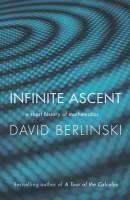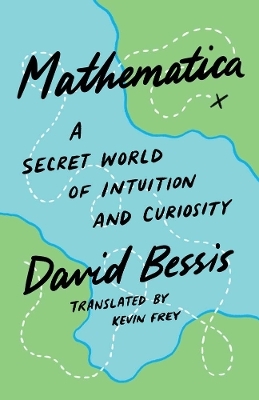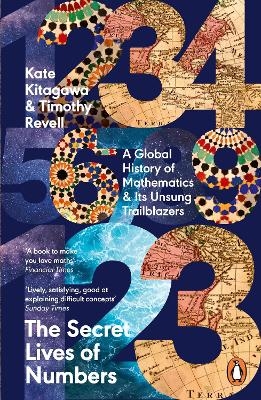
Infinite Ascent
A Short History of Mathematics
Seiten
2007
Phoenix (an Imprint of The Orion Publishing Group Ltd ) (Verlag)
978-0-7538-2183-1 (ISBN)
Phoenix (an Imprint of The Orion Publishing Group Ltd ) (Verlag)
978-0-7538-2183-1 (ISBN)
- Titel ist leider vergriffen;
keine Neuauflage - Artikel merken
The most important breakthroughs in the history of mathematics
From the Renaissance onwards, mathematics has had a near-mystical status. If the pragmatic Romans, and Christian Europe, did not share the Greeks' fascination with numbers and geometrical shapes, the introduction of Arabic numerals, and the Greek mathematical discoveries kept alive by Arabic scholars, set off a new interest in mathematics which has been with us ever since. Berlinski focuses on the key moments in mathematical history - and the men behind them. Here are Pythagoras, intoxicated by the mystical significance of numbers; Euclid, who gave the world the very idea of a proof; Leibniz and Newton, co-discovers of the calculus; Cantor, who opened the doors to infinity, before which all previous mathematicians had halted; and Godel, who in one magnificent proof placed everything in doubt and who discovered the algorithm which, along with the calculus, is one of the key ideas of Western science. With his ability to make abstract ideas concrete and approachable, Berlinski tells an engrossing tale and introduces us to one of the greatest of all human endeavours.
From the Renaissance onwards, mathematics has had a near-mystical status. If the pragmatic Romans, and Christian Europe, did not share the Greeks' fascination with numbers and geometrical shapes, the introduction of Arabic numerals, and the Greek mathematical discoveries kept alive by Arabic scholars, set off a new interest in mathematics which has been with us ever since. Berlinski focuses on the key moments in mathematical history - and the men behind them. Here are Pythagoras, intoxicated by the mystical significance of numbers; Euclid, who gave the world the very idea of a proof; Leibniz and Newton, co-discovers of the calculus; Cantor, who opened the doors to infinity, before which all previous mathematicians had halted; and Godel, who in one magnificent proof placed everything in doubt and who discovered the algorithm which, along with the calculus, is one of the key ideas of Western science. With his ability to make abstract ideas concrete and approachable, Berlinski tells an engrossing tale and introduces us to one of the greatest of all human endeavours.
David Berlinski has taught mathematics, philosophy and English at Stanford, Rutgers and the City University of New York, and mathematics at the University of Paris. He has been a research fellow at the International Institute for Applied Systems Analysis in Austria and the Institut des Hautes Etudes Scientifiques in France. His books have been translated into more than a dozen languages. He lives and works in Paris.
| Erscheint lt. Verlag | 4.1.2007 |
|---|---|
| Verlagsort | London |
| Sprache | englisch |
| Maße | 130 x 197 mm |
| Gewicht | 180 g |
| Themenwelt | Mathematik / Informatik ► Mathematik ► Geschichte der Mathematik |
| ISBN-10 | 0-7538-2183-4 / 0753821834 |
| ISBN-13 | 978-0-7538-2183-1 / 9780753821831 |
| Zustand | Neuware |
| Haben Sie eine Frage zum Produkt? |
Mehr entdecken
aus dem Bereich
aus dem Bereich
a secret world of intuition and curiosity
Buch | Hardcover (2024)
Yale University Press (Verlag)
CHF 45,80
a global history of Mathematics & its Unsung Trailblazers
Buch | Softcover (2024)
Penguin Books Ltd (Verlag)
CHF 22,65
Das Jahrhundert, in dem die Mathematik sich neu erfand. 1870-1970
Buch | Hardcover (2022)
Heyne (Verlag)
CHF 30,80


